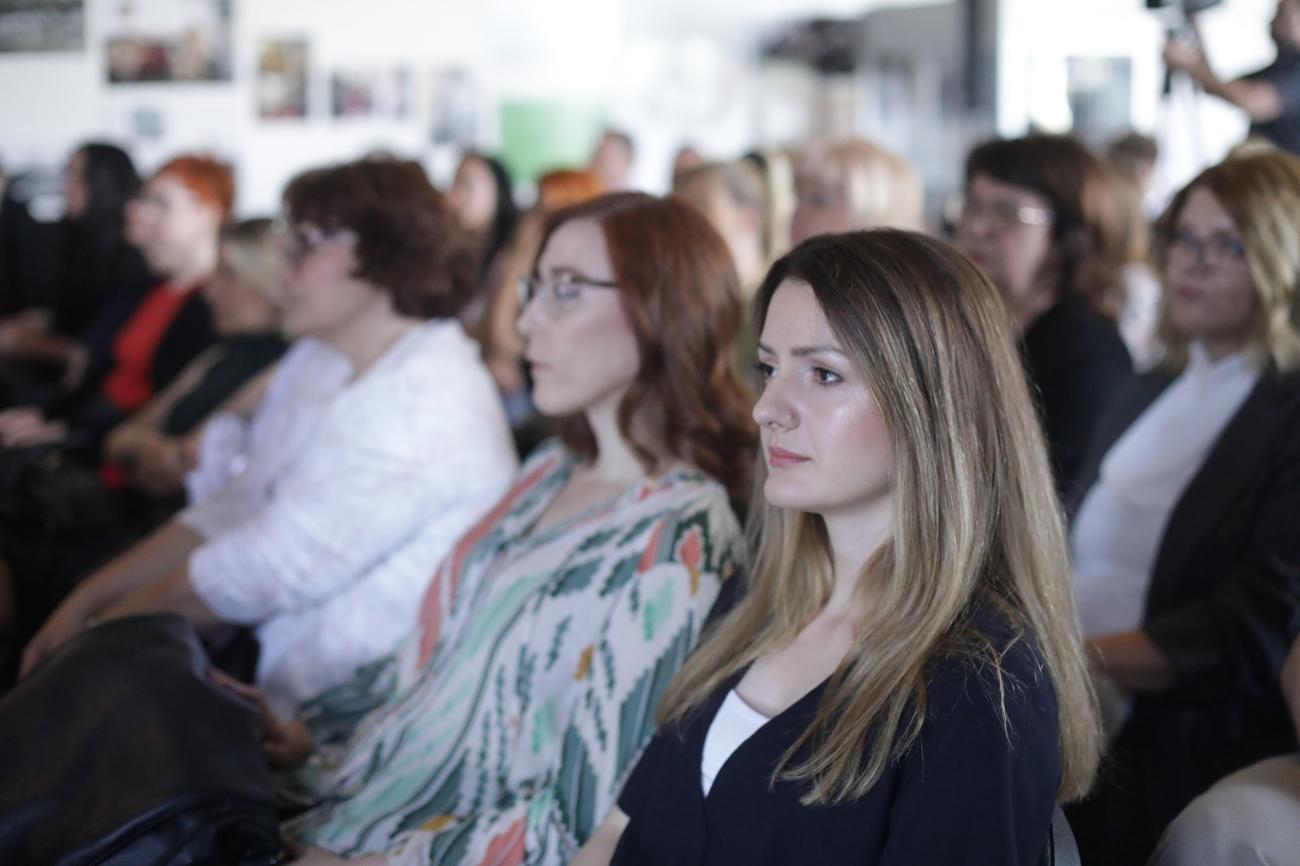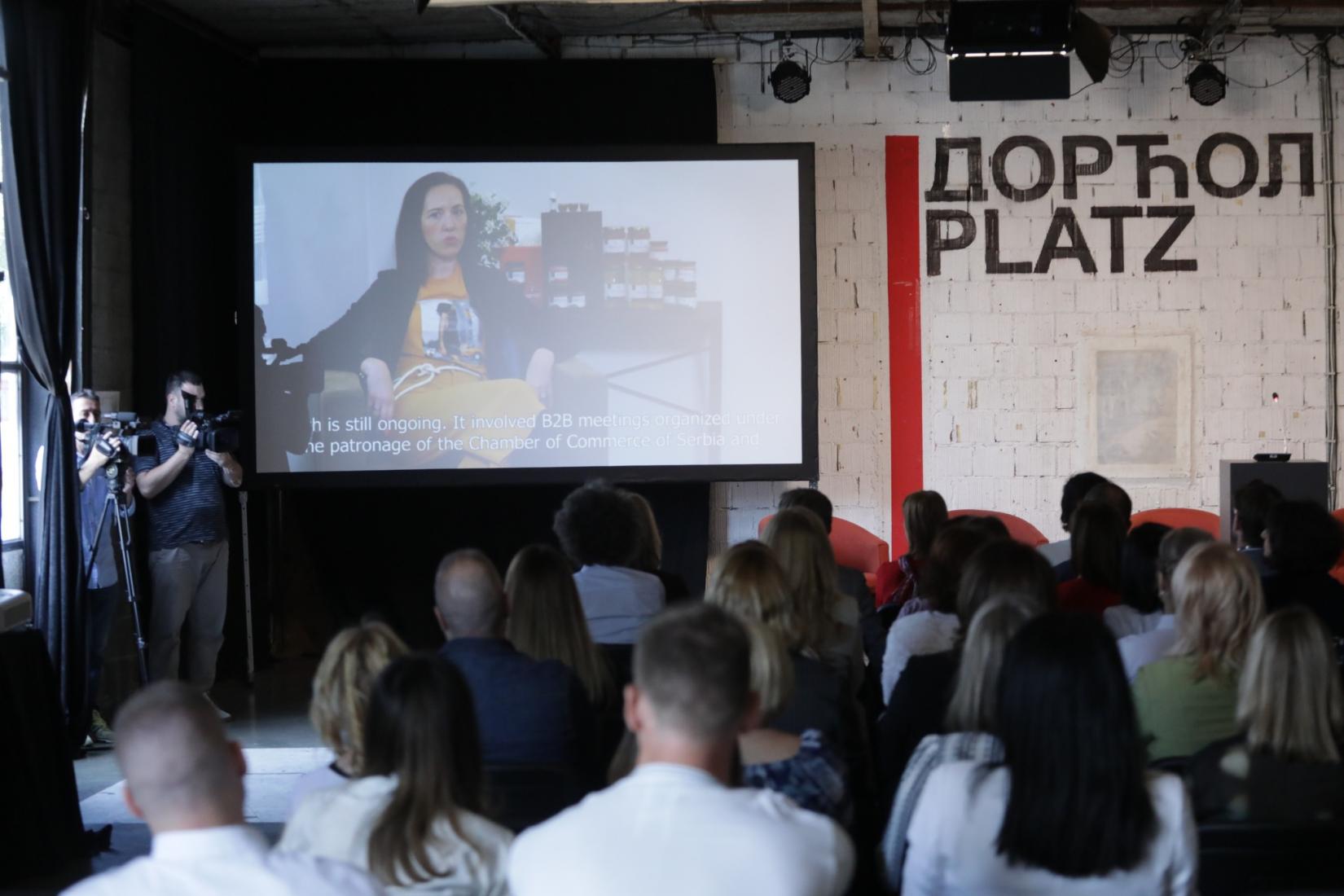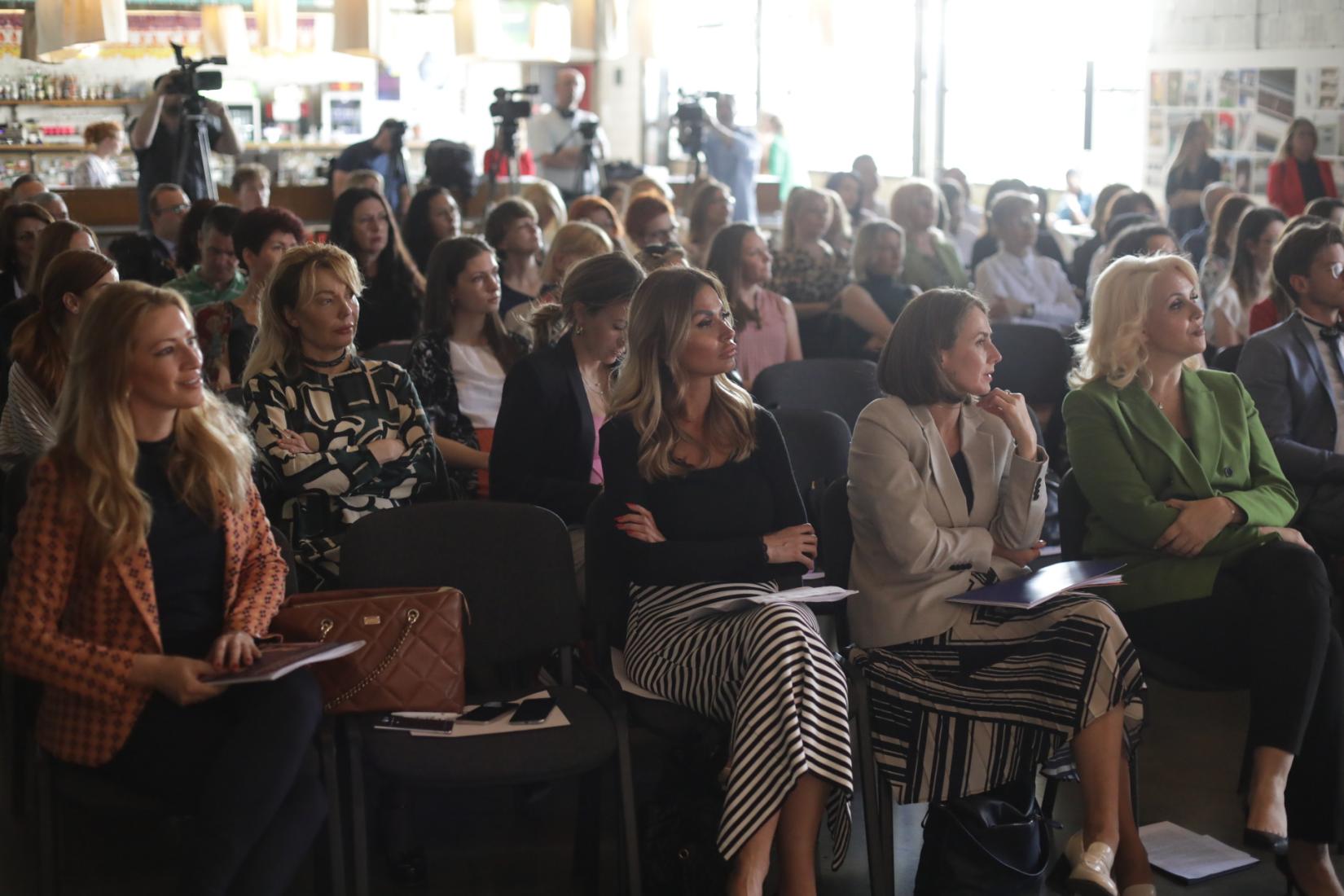Women Make Up 31 Percent of All Entrepreneurs in Serbia, New Research Finds

The “Study on Women’s Entrepreneurship in Serbia – 10 years later” was presented in Belgrade.
Olgica Samoilovic founded Hedera Vita Company in 2011 in Loznica, Serbia, because she wanted to combine her creativity and the desire to do business independently. At that time, not many supported her, but her persistence paid off. Her company deals with production and sales of cosmetic products, and Heather Vita's first product was a soap that she made herself. Today she runs a successful business, although she says that the biggest challenge is to achieve ideal work-life balance.
“It is extremely important for every woman entrepreneur to have support - to have a mentor, that is, an experienced person who will be there to resolve doubts and give advice when necessary, but also to have support of her partner and family, because without them it will be very difficult to balance all daily tasks”, she says.
Olgica is one of women entrepreneurs in Serbia. According to a new study, they make up 31.2 per cent of all entrepreneurs and 70 per cent of the ‘new’ entrepreneurs captured in surveys spanning a decade. On average, they are older with an average age 46, comparing to 10 years ago when average age was 41. They are more educated - 50,6% have college or faculty degree, compared to 2011 when the percentage was 29,2. They mostly became entrepreneurs out of opportunity rather than necessity. These are among the main findings of the “Study on Women’s Entrepreneurship in Serbia”, conducted 10 years after a baseline study a decade ago, which was presented at the beginning of June in Belgrade.

The first baseline study on women’s entrepreneurship in Serbia was published in 2012, based on research initiated by the then Ministry of Economy and Regional Development of the Republic of Serbia, with support from UN Women, and carried out by SeConS, an independent Serbian think-tank for applied research and policy analysis. The study included several policy recommendations to encourage women’s entrepreneurship and close the gender gap in economic participation and employment.
In 2021, the Ministry of Economy of the Republic of Serbia set out to review the state of women’s entrepreneurship a decade later, to detect the changes, achievements, challenges and potential for women’s entrepreneurship that future policies should consider. This research was again carried out by SeConS, with support from UN Women’s “Support to Priority Actions for Gender Equality in Serbia” project, funded by the European Union. The aim was to provide necessary data to the Ministry of Economy so it can formulate policies to stimulate women’s entrepreneurship.
The study reveals the obstacles women entrepreneurs encounter today in starting an independent business and as the most important they point out familiarity with the regulations on financial obligations, securing initial financial resources, finding clients, finding an adequate workforce, knowledge of labour and employment regulations, standards of activity, sanitary conditions, but also finding suitable premises, suppliers, as well as the inability to share their fears and risks with someone.
It is noticeable that the share of those who received some information about starting an independent business through regular education has doubled, which may indicate that school and higher education programmes now offer more information about entrepreneurship. Women entrepreneurs who received information on how to start their own business during their education 10 years ago was 15 % and now it increased to 31.9 %.
Although the gender segregation is still present in terms of the sectoral orientation of “women’s” and “men’s” businesses, comparative data for 2011 and 2021 indicate that there have been noticeable changes in the sectoral structure of women’s businesses: the share of women entrepreneurs operating in the trade sector has decreased significantly, the share of those operating in the catering sector has decreased to some extent, while the share of those operating in the IT and communications sector, real estate and especially professional, scientific, technical and innovative activities has increased, whereas the share of businesses in the administrative and social services has nearly doubled, primarily due to the increased share of business ventures in the field of education and healthcare.
The study shows different challenges in doing business in 2022 compared to 2011. Those that increased are unfavorable position of small companies on the market, market monopolies, difficulties in defining the appropriate price of a product or service, availability of labour with appropriate qualifications and keeping up with new technological and technical standards. On the other hand, today is easier to collect claims, the demand for products and services is sufficient and what is also important government programmes for development assistance are more available as well as bank loans.
The findings of the research carried out in the spring of 2022 indicate that despite all the challenges and difficulties, especially with COVID-19 pandemic, women entrepreneurs showed significant resilience, and that this was supported by the measures of the government, which were rated positively by a large percentage. Slightly more than a fifth of women entrepreneurs pointed out that the pandemic did not affect their business in any way.
The change compared to women entrepreneurs ten years ago can also be seen in the practices of sharing the responsibilities and tasks in the household, because today’s women entrepreneurs perform basic household chores together with their partners much more often than women entrepreneurs ten years ago. However, even with this change, they undoubtedly carry the largest share of household responsibilities, which, along with running a business, creates increased workloads.
Today’s women entrepreneurs, compared to those in 2011, show a greater balance between work and family life. This can partly be explained by their different family structure, because among today’s women entrepreneurs there is a smaller share of those who are married and have underage children.
Minister for Family Care and Demography and Deputy President of the Coordination Body for Gender Equality, Darija Kisic, said, at the presentation of the study, that women are entrepreneurs in their own homes – they combine their knowledge, values, and very often their imagination, to achieve the almost impossible – make everything work.
"Now it is important that we improve and address the position of women in the reproductive period so they can be competitive and active on the labor market. Regarding work – life balance, we should encourage fathers, husbands, partners to support their wives, and to see the family as a team where everyone contributes”, she added.
The findings show that women entrepreneurs are more diversified in their business pursuits, so instead of staying concentrated in the trade and personal services sector, as before, they are now increasingly oriented towards the knowledge economy, professional, scientific, innovative and technical activities as well as other qualified services, while also increasing their businesses in non-traditional sectors such as IT, transport, construction, etc.
Aleksandra Miletic, GEF Project Officer in UN Women Serbia Country Office says that the study showed that women have huge potential in entrepreneurship, which fuels economic development: “That is why female entrepreneurship in Serbia must be strengthened through projects and laws on equality, to encourage and motivate women to start their own businesses and use their full potential”.




